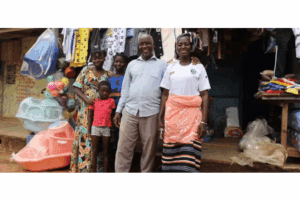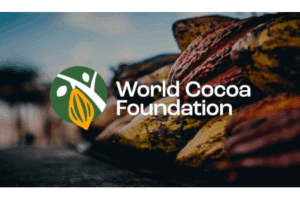According to a new study published in IOP Publishing’s journal ‘Environmental Research Letters’, over 55% of cocoa exports from Côte d’Ivoire cannot be traced to their origins, as the study investigated the transparency and traceability of cocoa supply chains in the world’s largest cocoa producer.
Results show that less than 45% of cocoa from Côte d’Ivoire can be traced back to the first buyer, and the remaining 55% cannot, either because it is indirectly sourced by traders from intermediaries or exported by traders that disclose no information about their suppliers.
In Côte d’Ivoire, cocoa accounts for one third of the national export revenue – however, the industry is a big factor in driving deforestation, as the country has lost 80% of its forest cover in the past 60 years. The study shows that during 2000-2019, almost half of the deforestation and forest degradation in the country was due to cocoa, replacing each year an area larger than New York City.
Cécile Renier, lead author of the study said: “As Easter approaches, the world’s largest chocolate consumer, the European Union, is nearing the peak of its chocolate season. It is one of the busiest times of year for the chocolate industry, which increasingly sells its products to consumers as ‘ethical’ or ‘sustainable.’ But given the extremely limited tracing in the industry, consumers are not being shown the full picture about where their chocolate comes from, and the serious sustainability issues attached to it.”
Led by researchers from Earth and Life institute at UCLouvain, Belgium, the new study shows that high rates of untraced cocoa sourcing can be found along the border with Liberia, where forests are under threat by cocoa expansion from Côte d’Ivoire. In these regions, 80-100% of exported cocoa is not traceable to its first buyer, let alone to its origin farm.
As part of the Trase initiative, the research team utilised publicly available datasets for Côte d’Ivoire‘s 2019 cocoa exports and land use to link cocoa production and associated deforestation to specific companies and markets.
“A lack of transparency and traceability within the industry means that this deforestation is going unchecked and unaccounted for. Even traders who disclose their supplying cooperatives can greatly strengthen their level of transparency: the disclosed data is incomplete, irregular, non-standardised or never updated,” added Renier. “Above all, companies must go beyond the traceability of their own supply chains. Much greater means are needed to enforce land use policies and landscape initiatives. Coupled with transparent national traceability systems and robust deforestation monitoring, this would ensure effective forest conservation, and achieve true sustainability in the cocoa supply chain.”
Stay up-to-date on the latest industry news and developments in our magazine.
Never miss a story… Follow us on:
![]() International Confectionery
International Confectionery
![]() @InConfectionery
@InConfectionery
![]() @InConfectionery
@InConfectionery
Media contact
Caitlin Gittins
Editor, International Confectionery
Tel: +44 (0) 1622 823 920
Email: [email protected]








